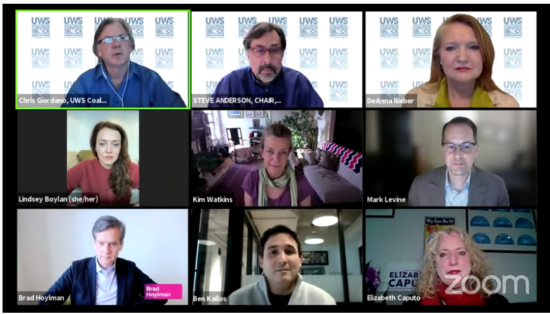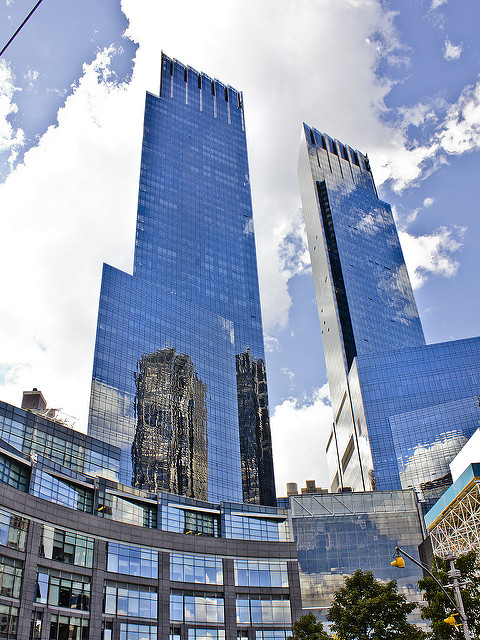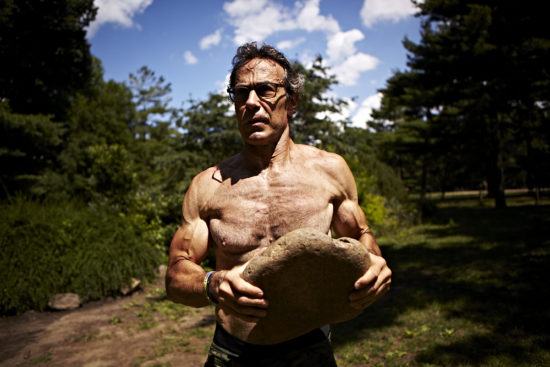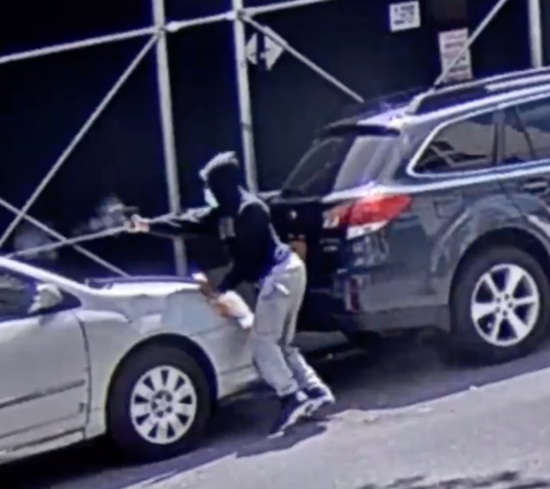By Maya Mau
The race for Manhattan Borough President has mostly flown under the radar as the mayoral race has heated up — but it’s worth paying attention to now as the election looms on June 22.
On Tuesday, the Upper West Side Coalition of Block Associations and Community Groups hosted a forum for the candidates. They invited all the Democratic Primary Candidates: Lindsey Boylan, Elizabeth Caputo, Brad Hoylman, Ben Kallos, Mark Levine, and Kimberly Watkins — all except Kallos are from the Upper West Side or represent at least part of the neighborhood. All six attended. A video of the Zoom forum is below:
The Borough President plays an important role in Manhattan, working in close communication with the mayor to ensure that the borough’s affairs are run smoothly. This election includes ranked-choice voting for the first time in New York City history, so voters will be able to rank their top five candidates.
First, the candidates were asked if they have specific proposals to ensure that community boards are representative and diverse. All but Watkins have served on a community board. Boylan said the community board members should be able to participate remotely to accommodate disabilities, Caputo said that borough meetings should be hosted in all twelve community board zones, Kallos passed a resolution to put teens on the community boards and plans on continuing to make efforts to appoint more residents from public housing, people of color, school teachers, laborers, and leaders of community organizations, and Levine plans to actively recruit more young people, union workers, small business owners, and people with disabilities. Hoylman believes that community boards need to remove paid lobbyists and staff of elected officials while Watkins thinks that community board members should be elected.
Second, candidates were asked if they thought that the ten historic districts and three historic district extensions on the Upper West Side were preventing housing affordability. All six candidates raised their hand when asked whether they would pledge not to take away the historic district designations that are currently enforced. For the most part, the candidates agreed that removing the distinction of historic landmarks would not lead to a visible increase in affordable housing. Caputo and Watkins both want to ensure better communication with communities. Kallos cited the statistic that the Upper East Side, which has had more construction than anywhere else in Manhattan, lost units due to rent regulation and older buildings being demolished which were not replaced.
Third, candidates were asked how they would use their office to find a solution to opportunity gaps. Generally, each candidate stressed the importance of increased funding, communication with parents, and diversity. Notably, Caputo stressed ensuring that children can return to school safely in the coming months, Hoylman hopes to screen every kindergarten student for dyslexia, and Watkins would like to abolish mayoral control of schools in favor of shared control.
Fourth, the candidates were asked how they would address an increase in crime. The candidates generally agreed that responders who specialize in mental health, rather than police, should be the first to respond to mental health crises. Watkins, who noted her background in law enforcement, took a hard stance that the borough should have more police who feel empowered to do their work. On the other hand, Boylan believes that the city does not need more police but rather needs to better allocate the resources that it has, stating that the focus needs to be on violent crimes rather than misdemeanors.
Lastly, the candidates were asked what their plans were for promoting a cleaner and greener borough and what they thought could be done on a local level to address the climate crisis. Generally, all of the candidates support efforts to decrease use of plastic and increase environmentally-friendly sources of energy. Notably, Levine highlighted his work creating legislation that mandates large buildings reduce consumption of greenhouse gas energy by 80% by 2030. Kallos wants to see Roosevelt Island as a source of energy while Hoylman wants a Green New Deal for housing. In addition, Caputo wants a coastal resilience plan to ensure that the borough is prepared for future natural disasters.










Woke, woker and wokest. I wish they had asked some better questions.
I appreciate that Watkins, unlike many others, acknowledged that it is critical for us to feel safer and have a police presence. But it is hard for me to vote for her given how she has tried to use her position on CEC3 to gut and dumb down our schools. Rather than making bad schools better, she has tried to make good schools worse to create “equity.”
As a moderate Dem, I am looking for suggestions here? Anyone?
Agree! Might be time to try a moderate Republican. No good choices here and they leave no other option. We need common sense now.
There is NOTHING common about sense.
Anyone seeking information about the UWS Coalition, learning more about block associations, or starting one, please be in contact: upperwestsidecoalition@gmail.com
THANKS NEIGHBORS,
Steve Anderson (W81st St), Board Chair, UWS Coalition
Is this forum discussion available for viewing somewhere? Thanks
The discussion forum video is on youtube https://www.youtube.com/watch?v=nVmj8m-ky1Y&t=31s&ab_channel=UpperWestSideCoalition
There is extensive research showing that historic preservation raises housing costs and reduces affordability.
https://twitter.com/aaronAcarr/status/1392906698822668293
Intuitively, why would making it harder and more expensive to construct and repair housing make it cheaper? We’re never going to solve our affordability problem if our representatives insist on substituting their personal intuitions for the facts.
The number one thing historic districts preserve is high housing prices.
Sounds like a developer. Some people like living in older housing and their neighborhoods. It is an attraction to many people.
If you don’t, you don’t have to live there, or in NYC, for that matter.
Not a developer, just a young person who would love to be able to afford to raise a family here. I want housing prices to go down, not up, which is why I think we should take a more careful look at these historic districts.
The problem is that none of these candidates even acknowledge a trade off. If they want to argue that preservation is worth the decrease in affordability then they should do so. They’re denying that there’s any trade off at all. Pretending that historic preservations affordability problem doesn’t exist isn’t going to solve it.
Sorry Josh but you really need to adjust your thinking. Literally thousands of units have been built in just the last 2 years in NY. Their construction has NOT resulted in housing you might find affordable. Historic buildings have been leveled to construct them and with them people living in low rent apartments have been removed to either another city, suburb or onto the streets. The idea that it’s necessary to remove or lessen historic districts or landmarks is the big lie perpetrated by the real estate industry. There’s hardly a development that has gone up on the UWS in years that anyone making a starting salary in NYC could afford. 200 Amsterdam which was built on an illegally zoned lot to build it higher than any other building on the UWS starts at $2 million dollars for a one bedroom. The penthouses which one Judge ruled must be removed as they are out of the zoning for this district– are $40 million. Sorry about that but that is the reality. There’s one low income housing development built on 108th street-and that’s it. So your theories would do nothing more than destroy that which makes this city distinctive and brings to future generation the history of NY and a sense of its prominence and beautiful architecture. This is not Dubai.
As always pro-development Yimby’s on the comment line. Historic preservation makes communities desirable. It also preserves the legacy of a city which is essential to any understanding of it ,and for a future for others one day to respect and appreciate. Watch out for those shilling for the real estate industry who care not one bit about you or your quality of life in this city. They care only for how much money they are making. Many of those running for MBP understand this.
Is there some reason Manhattan has to keep growing (ie adding population and housing units)? I do not buy into that premise. And people seem to take that as a given. It’s not. Let’s stay static.
Preserving a neighborhood doesn’t just mean preserving the buildings that were built here, it also means preserving the human relationships that have grown here. Some people here have kids, and when those kids grow up, it’s nice if they have the option to live close to their parents and grandparents instead of being forced into the suburbs. Unless we want to implement a One Child Policy, Manhattan needs to grow so people have somewhere to live. A just society provides a future for its children.
I’m not surprised that people choose to ignore the research and go for ad hominem attacks. But the ad hominem attacks don’t even make sense! How does a greedy developer make money advocating for policies that make real estate more affordable?
The truth is that landlords and real estate speculators love historic preservation because it increases the value of their investments. Nobody here is arguing that a historic district depresses property values.
I love living in a pre-war building and feel strongly about maintaining the character of the neighborhood. However, the rules for historic preservation neighborhoods are incredibly onerous.
We face an inner courtyard and were considering minor changes to our windows and we were told to forget it because it would be a giant headache.
Whoever wrote the laws made it so that it is impossible to make minor renovations in “historic zones” but left tons of loopholes for developers to circumvent elsewhere, such as with 200 Amsterdam.
100% agree, where is the pro-housing candidate in this race?
I’ll vote for the candidate who promises to try to get the job abolished.
Love it Paul. We would be better off without community boards and the borough president. There is no reason for all this bureaucracy which cannot be voted out.
So it sounds like MN will have at least 4 more yrs of no public bathrooms. Wtf is the thinking that we can have millions of ppl on this island day and night, and noplace to take a leak?
And what about the significant problem with these unregulated helicopters pounding away on joy rides over our neighborhood, degrading our environment, safety and quality of life?
Agreed Steven. I saw Jerry Nadler on the block campaigning for some Borough President candidate and I was tempted to say something not nice. Joe Biden could shut that down easily. It’s a public safety/terrorism issue in addition to ruining our quality of life. Hard to believe the helicopter companies are so powerful . . .
Mark Levine didn’t get a lot of coverage in this article — maybe because he is not radical or controversial. My experience with his office over the years is that he is rational, knowledgeable, responsive, and has worked tirelessly to preserve affordable housing in and outside of his district. He gets things done. He has my vote!